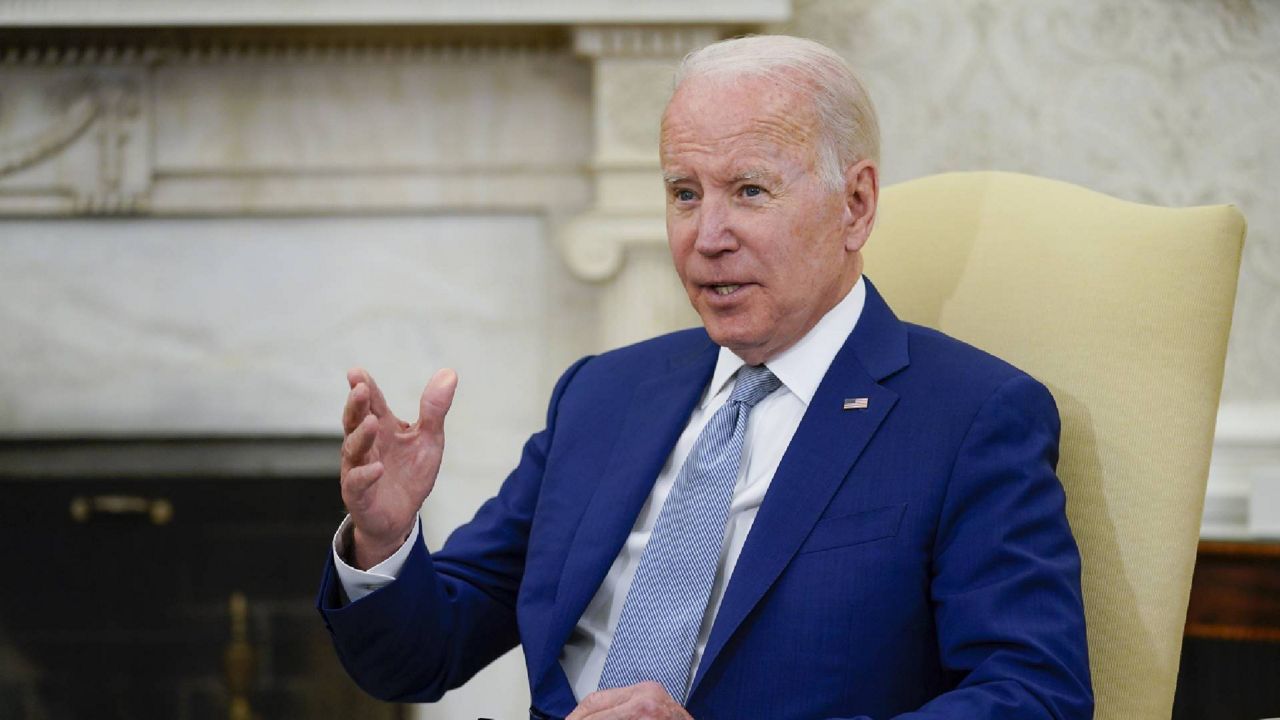The White House on Tuesday announced the launch of a new push to focus on the economy during June, as President Joe Biden called tackling inflation his “top economic priority” and laid out his strategy to combat prices driven more than 8% higher over the last year due to the pandemic, supply chain issues and the war in Ukraine.
A White House official said that talking about the economy and addressing higher prices “will be the key message being driven” by the administration “all month,” starting with a Wall Street Journal op-ed by President Biden published Monday.
Rising gas and food costs have angered many Americans heading into the midterm elections, putting Democrats’ control of the House and Senate at risk.
Biden is running out of options on his own. His past attempts — oil releases from the strategic reserve, improving port operations and calls to investigate price gouging — have fallen short of satisfactory results. High prices have undermined his efforts to highlight the low 3.6% unemployment rate, leaving a growing sense of pessimism among Americans.
Biden in his op-ed pointed to those economic successes — millions of jobs added since the start of the pandemic, small business growth and a reduction of the federal deficit — while also admitting that “Americans are anxious.”
“I know that feeling. I grew up in a family where it mattered when the price of gas or groceries rose,” the president wrote. “But the American people should have confidence that our economy faces these challenges from a position of strength.”
A White House official on Tuesday said the administration’s economic officials will be front and center on TV this month to promote their June focus. Biden will also speak on the May jobs report this Friday, with the White House expecting to announce more travel, events and actions throughout June.
National Economic Council Director Brian Deese said the country was moving into a “transition” phase when inflation would begin to moderate but job growth would also slow down.
“What he will continue to do is try to help make sure that we're communicating clearly to the American people what that means,” Deese said at the White House Tuesday.
Yet Biden is ultimately limited in what he can do to force prices down at this point.
In Monday’s op-ed, the president outlined a three-part plan to combat inflation that includes respecting the Federal Reserve’s independence, addressing supply chain issues and keeping the federal deficit lower partly by implementing tax reforms.
But many of the concrete actions he laid out, such as capping insulin prices and boosting the Internal Revenue Service, require congressional action.
White House press secretary Karine Jean-Pierre on Tuesday also had few specific answers to questions about the president’s plan to combat high gas prices, for example, pinning blame on Russia’s invasion into Ukraine.
“His policies [have] helped the economy get back on his feet,” she said. “When we talk about the gas prices right now, this is indeed Putin's gas hike. This is what we have seen in the most recent months at the gas pump.”
She pointed to the actions Biden has already taken, such as releasing oil from the nation’s strategic reserves and temporarily allowing gasoline with a higher percentage of ethanol to be sold at select gas stations.
The Associated Press contributed to this report.



